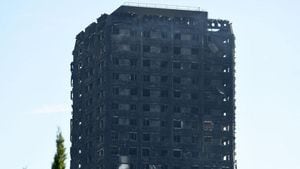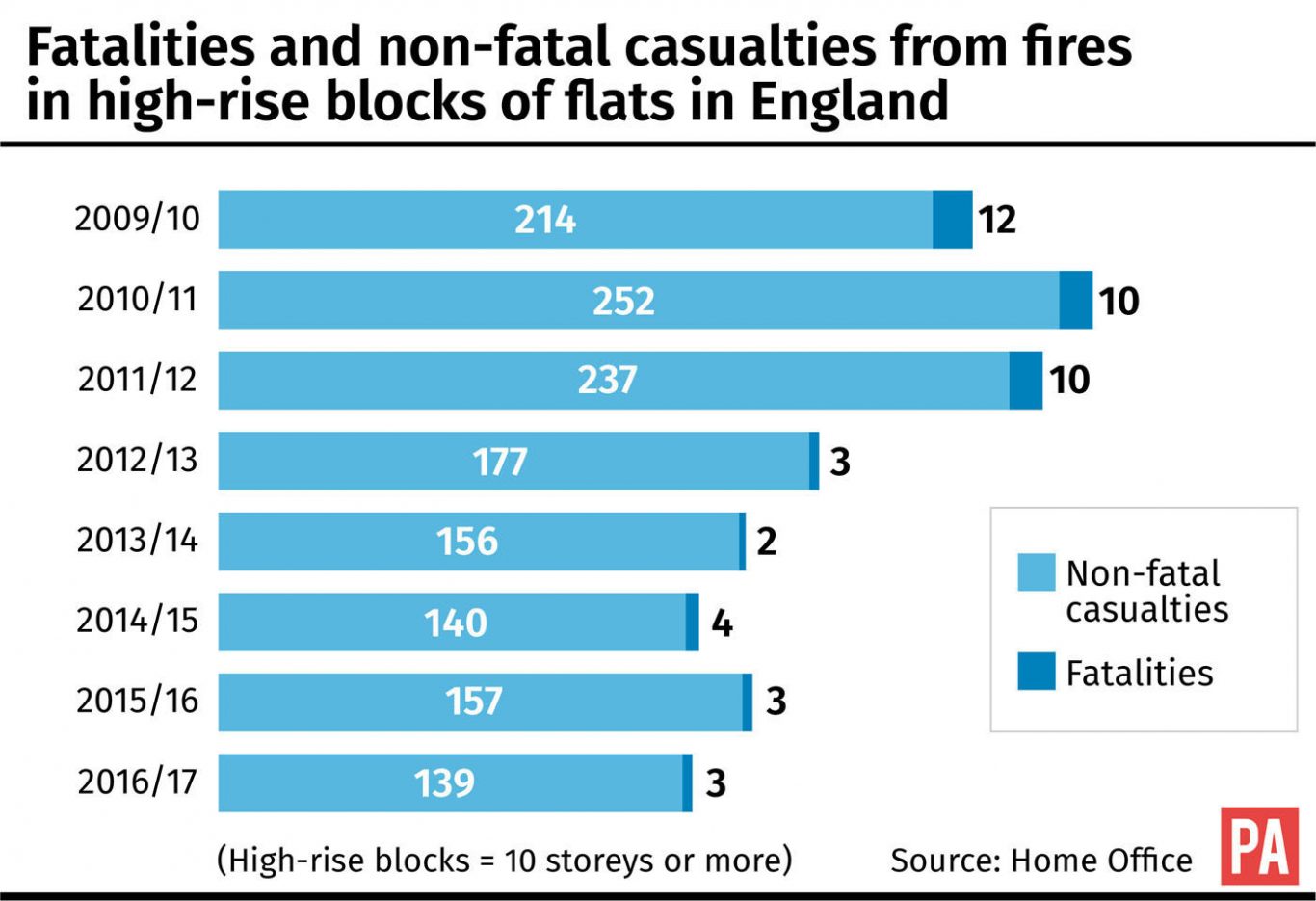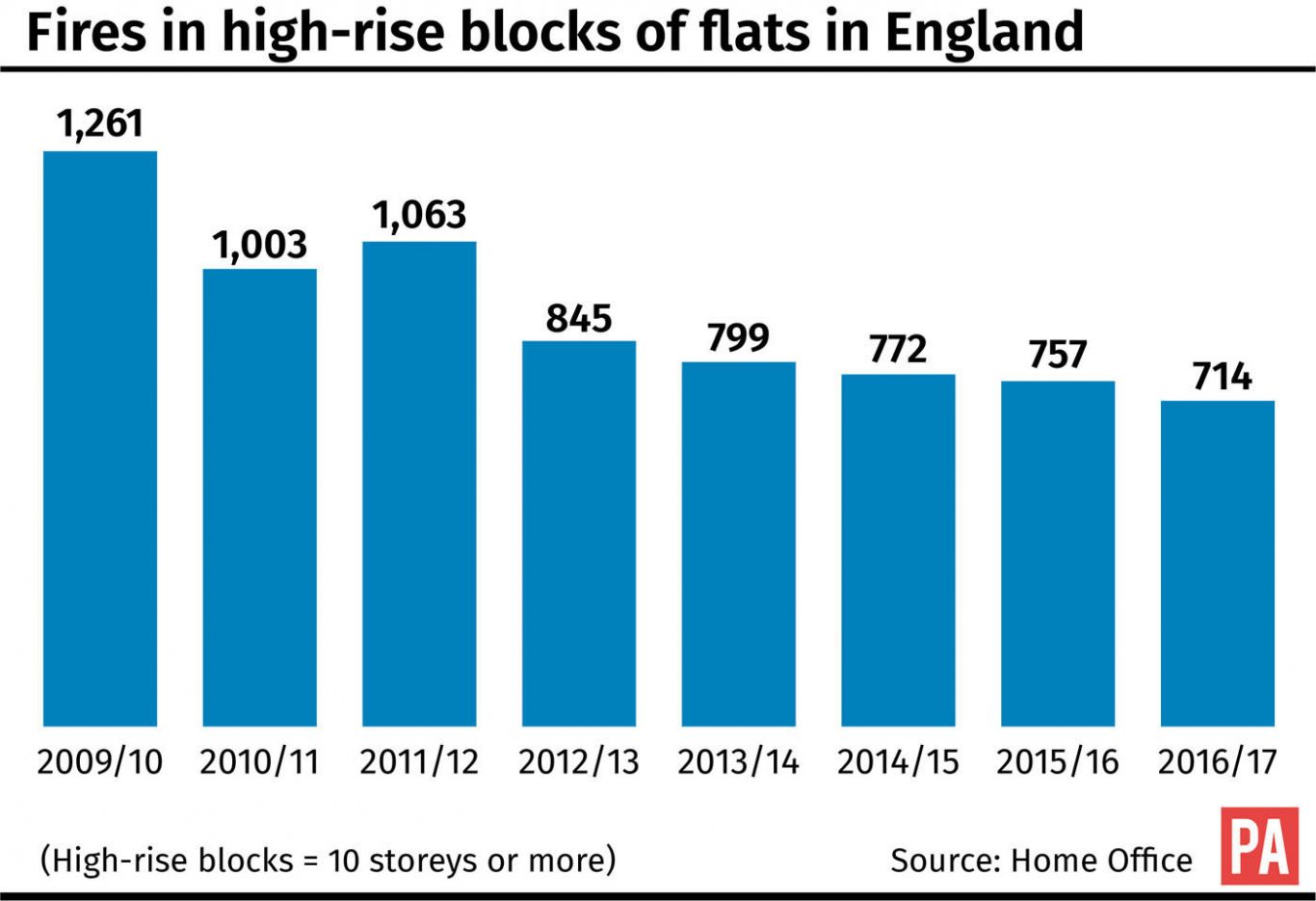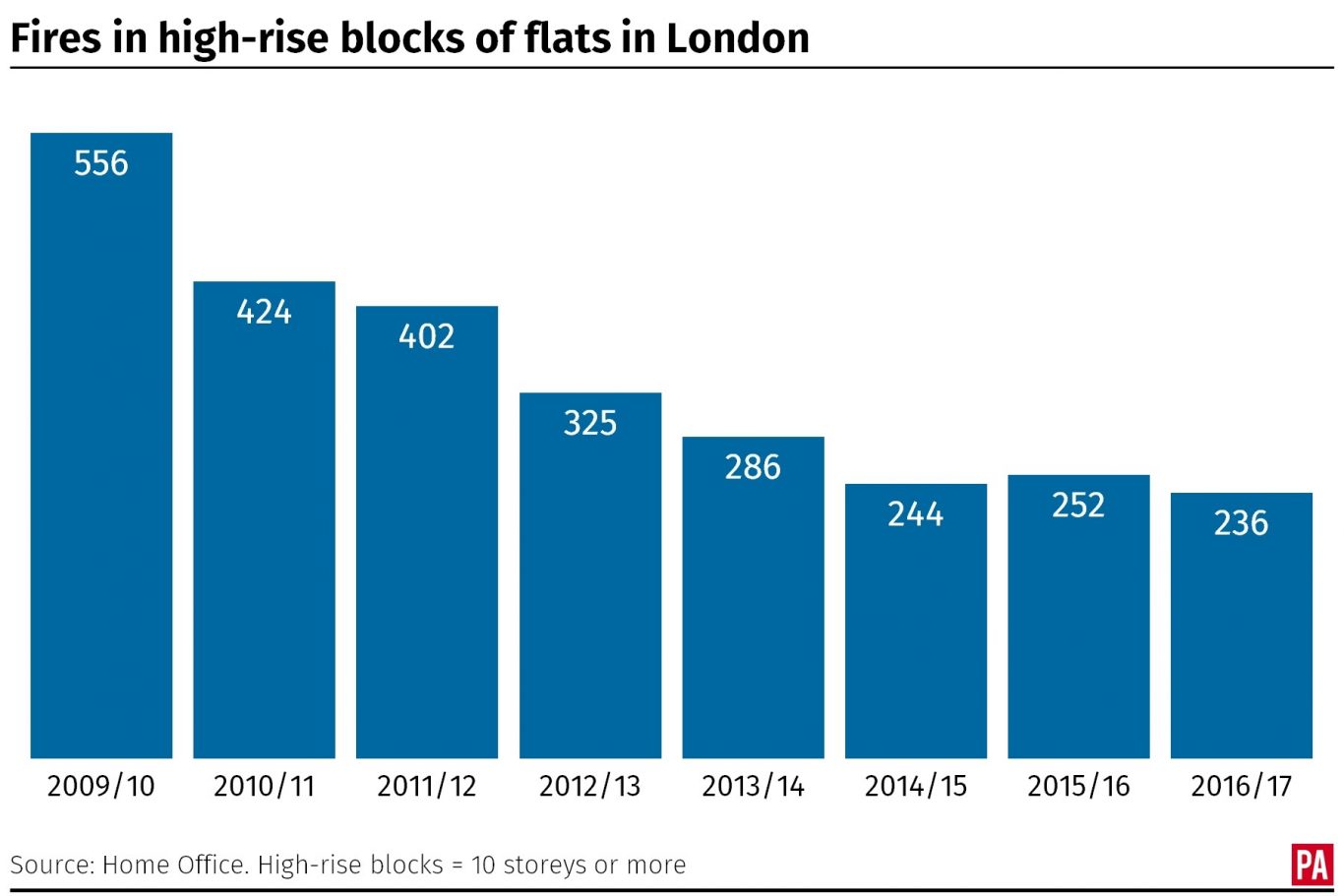Steep fall in high-rise fires in seven years before Grenfell Tower blaze
Not including the west London tragedy, there were 47 fire-related fatalities in high-rises since 2009.

The number of fires in high-rise purpose-built flats fell by almost half in the years leading up to the Grenfell Tower disaster, new figures show.
One-off figures released by the Home Office in response to the “exceptional circumstances” following the deadly tower block blaze show that fires in high-rise flats fell more rapidly than those in houses, bungalows, converted flats and medium and low-rise blocks.

Fire and rescue services attended 1,261 blazes in purpose-built high-rise flats in England in the 2009/10 financial year, compared with 714 in 2016/17 – a 43% decrease.
Just 2% of the 30,296 dwelling fires attended by fire services in England in 2016/17 were in purpose-built high-rise flats.
Not including Grenfell, there were 47 fire-related fatalities in high-rises since 2009 – less than the number feared dead in the recent blaze.

In the release, the Home Office defines a high-rise block as one with at least 10 storeys.
Two-thirds of purpose-built high-rise flats in England are in London, according to English Housing Survey data.
The data set also shows that fire safety audits dropped by almost a fifth since 2009.

These are routine, planned inspections where a fire safety officer assesses the level of compliance with fire regulations.
If they think fire safety measures are inadequate, they can take action by issuing an informal notice suggesting improvements or a formal notice requiring improvements.
Fire services carried out 63,201 audits in England in 2015/16 – up by 7% from the previous year but 18% lower than in 2009/10 (77,532).





